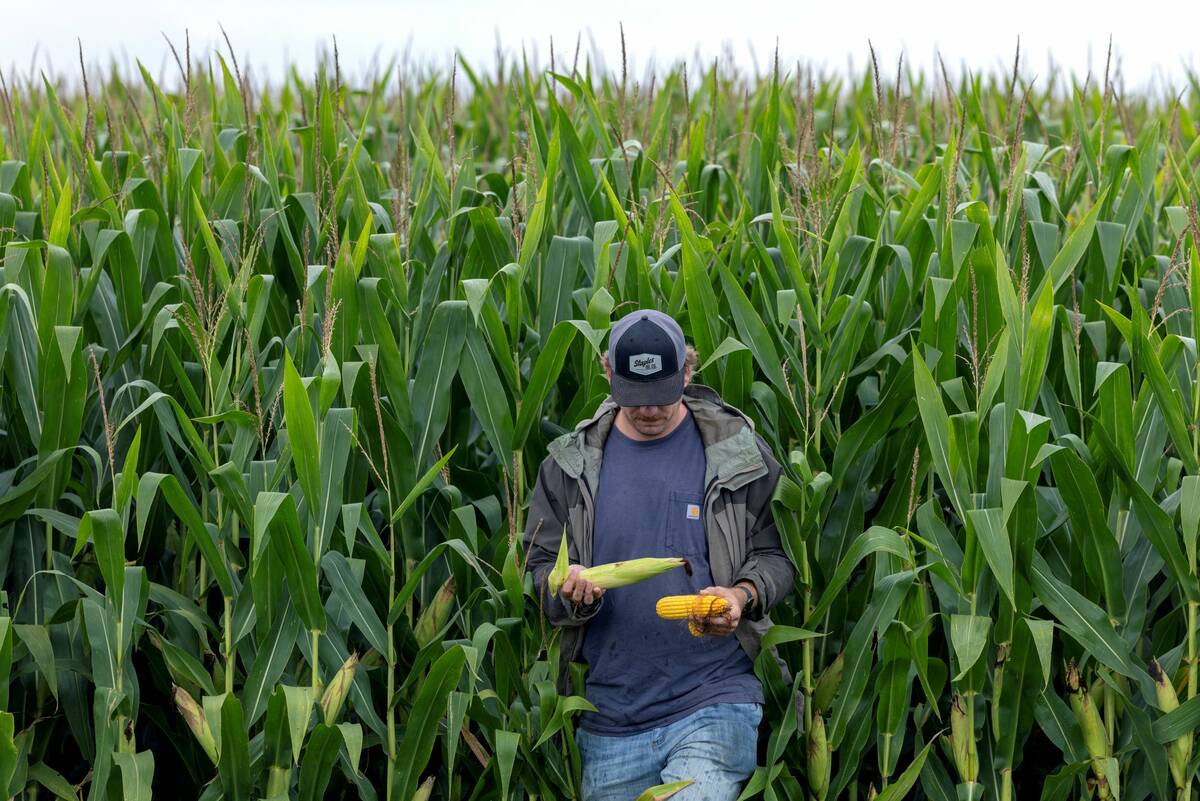MarketsFarm — The last vessel of the shipping season will depart the Port of Thunder Bay on Friday. Grain handling volumes were down on the year, but increases in other categories helped limit the overall reduction in movement through the northern Lake Superior port.
The 2021 navigation season will come to a close with the MV Manitoulin carrying a shipment of wheat. Total grain movement during the season came in at 7.24 million tonnes, down 21 per cent on the year, but only slightly off the five-year average of 7.81 million tonnes.
Read Also

The U.S. corn crop could be the biggest ever. That’s terrible news for America’s farmers.
The USDA predicts a record corn crop for U.S. farmers, who question the agency’s accuracy amidst high debt and low crop prices.
Total cargo movement during the season, at 8.58 million tonnes, was down by 16 per cent from 2020 but only six per cent below the five-year average.
“Despite decreased grain shipments caused by weather conditions on the Prairies, the port experienced growth in most areas, demonstrating success in its diversification initiatives,” the port reported in a release.
Keefer Terminal cargo volumes doubled in 2021, with shipments of steel products and phosphate fertilizer making the most significant gains. The tonnage of cargo handled at the terminal was the highest in 20 years.
The port acknowledged its partnership with cargo operations partner Logistec Stevedoring as key to its success in growing business at Keefer.
“Success in transporting general cargo, particularly valuable dimensional pieces, depends on safe and secure handling. Reliability of the operation is critical,” port CEO Tim Heney said. “Thunder Bay has developed a reputation as a trustworthy Port, and this helps to generate new and repeat business.”
The increase in inbound shipments improves competitiveness of the system, enabling two-way cargo for vessels.
“We’re bringing more inbound cargoes every year. Matching these cargoes with export grain for saltwater vessels (salties) reduces the overall cost and environmental impact of shipping,” said Heney. “It also ensures a consistent volume of salties available in Thunder Bay for grain exports.”
Exports of Canadian-mined potash exceeded 600,000 tonnes for the first time since 2004. The commodity, used as fertilizer, ships primarily to Europe by saltie.
With a probable return to more favourable crop conditions on the Prairies, port officials were optimistic for a stronger shipping season in 2022.
Several large wind turbine shipments are due at Keefer Terminal in the summer, amidst another strong slate of steel and other general cargoes.
Further growth is anticipated in phosphate fertilizer shipments, which are imported for use by western Canadian grain farmers.
Four vessels have laid up in Thunder Bay for the winter and will undergo varying degrees of maintenance and repair.












